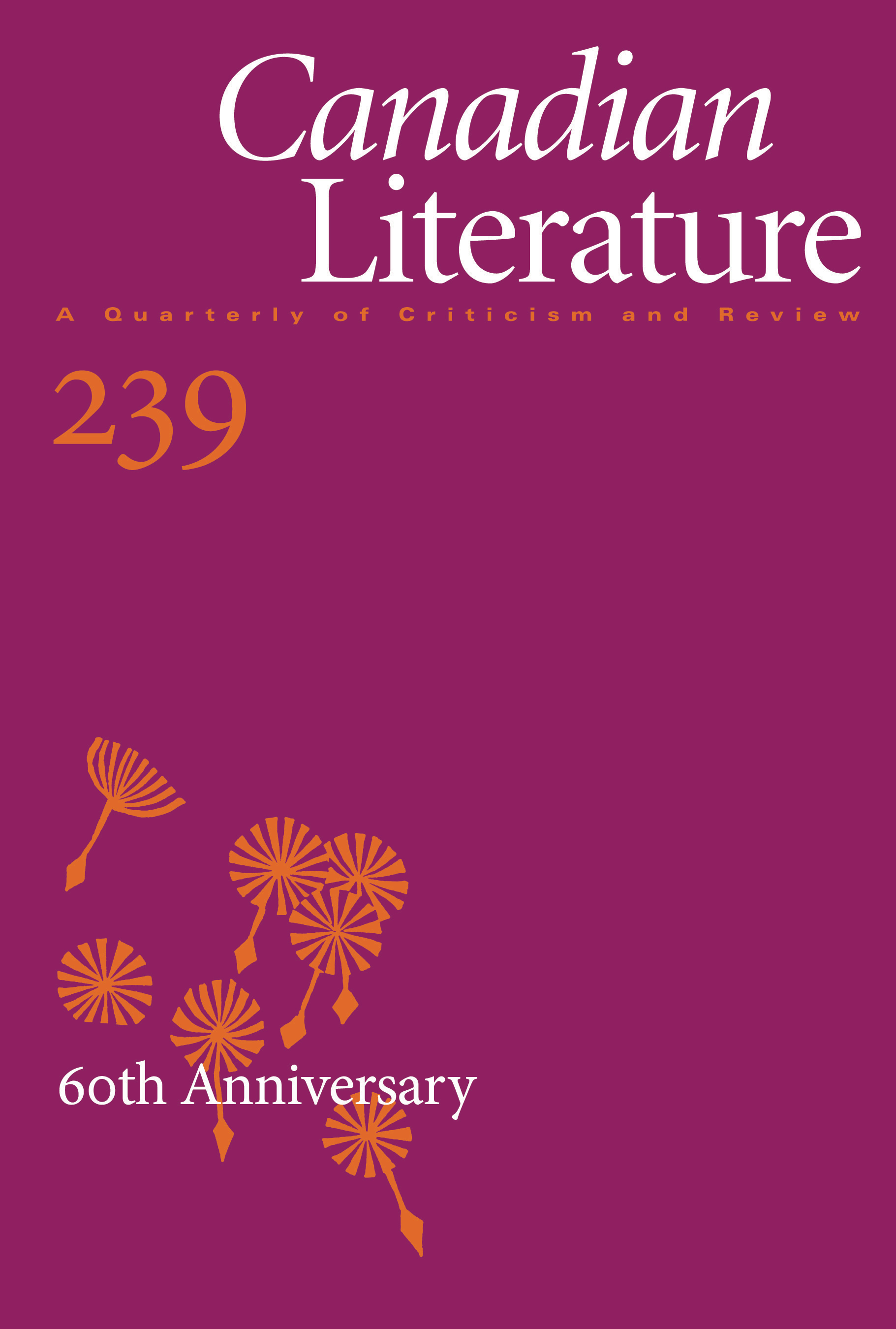The Decolonization of Print, Digital and Oral Space in Jordan Abel’s Injun
DOI:
https://doi.org/10.14288/cl.v0i239.191079Abstract
In Injun, Jordan Abel aggressively destabilizes print literary space by excavating “91 Western novels” available on Project Gutenburg for every instance of the word “injun.” While Injun offers a decolonial scrutinization of these novels wherein Abel uses their words against them—his extractions from the novels becoming reclaimed territory, refashioned into poetic expression—Abel’s poetic enterprise is inherently digital. This article explores Injun as a project of literary decolonization that uses digital technology to reclaim the colonial language that has been used to define and disempower Indigenous peoples. While it explores how the digital can catalyze an intervention in literature’s colonial roots, it further addresses the crucial tension between print and digital as both predominantly white spaces. Ultimately, Injun instantiates an Indigenous presence digitally via digital excavation, experimental typography and Abel’s digital, oral performance, all of which showcase an uncomfortable, but necessary breaking down of the English language in meatspace and cyberspace.


